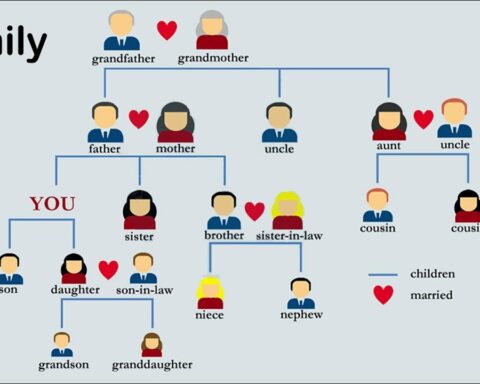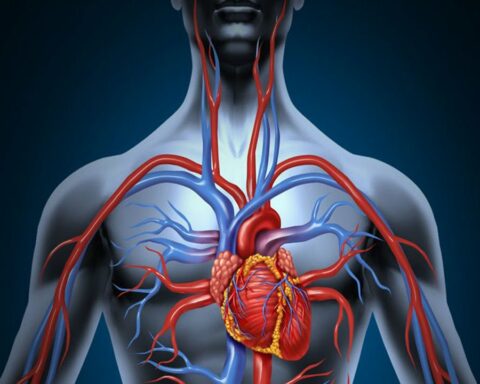There are misconceptions on the issue of going to bed just after eating. It has for long been debated on, and the understanding appears to be mixed.
You will get busy on your daily schedule as always, run some errands, and when you will sit down to have your dinner, believe me, it will be only some minutes away from bedtime. The majority have been made to believe that eating before bed is bad and that it can negatively impact their health. Some people, on the other hand claim that going to bed after eating, may just be one of the best strategies to adhere to a weight loss diet. So, what should you take as the answer? This article is designed to help come up with the best answer and belief.
Eating Before Bed Is Confusing
People have mixed beliefs. Are you one of them? I guess so because you are reading this article. Well, even nutritionists find it debatable to conclude whether eating between dinner and bedtime is good or bad for your health. What people have been made to believe conventionally is that eating before going to bed may only lead to weight gain. This is because your metabolic rate tends to slow down the moment you fall asleep, which may increase the chances of calories being stored as fat in your body. On the contrary, some health professionals suggest that you may have a better sleep, improve weight loss, and that this is just a fine practice to eat before bed.
Therefore, many people find it confusing which side to support or who to believe. In fact, the confusion is even made worse by the existing evidences supporting both claims. While the majority believe that a slower metabolic rate when one is asleep may lead to weight gain, the National Institutes of Health say that when you are asleep, your body is still in need of a constant and plenty supply of energy. This means that your basal metabolism rate at night will be as high as that of the day when you are fully active. Similarly, evidence backing the notion that calories tend to increase higher than they do at any random time of the day is so little that it can’t hold water. Frankly, there is no physiological aspect that can cause weight loss when you are asleep.
Nevertheless, many scientists have associated eating between dinner and bedtime with weight gain. Why is this so confusing? Funnily, you may not even believe the reason why, totally out of your expectation.
Eating Before Bed May Lead To Bad Eating Habits
Not even a single study has successfully supported the claims of eating before bed causing weight gain for a physiological reason. However, these studies made it a conclusion anyway. The reason explaining this may be something that you didn’t even expect. It is truethat people who eat before bed have a higher chances of gaining weight simply because what they snack at bedtime acts as an extra meal, adding extra calories (s). Plus, many people tend to be hungriest in the evening despite eating a lot during the day. Studies suggest that individuals who are stressed emotionally tend to have a higher level of ghrelin in the evening than at any other time of the day. This causes a spike in hunger, making them consume extra meals before bed which increases their calorie count above their daily value.
Some people also have a habit of snacking at night while working on their computers or watching TV. This only increases their weight. What’s more, some people are also attacked with sharp hunger pangs before bed simply because they did not take enough food during the day. This can lead to the bad habit of eating too much before bed, followed by feeling full to eat enough the next morning and again feeling too hungry before bedtime. It will help if you take enough food and a balanced meal during the day to avoid this habit of eating too much before bed. Still, eating before bed cannot lead to weight gain. You will notice that those who eat before bed will only be eating or snacking an extra meal which will definitely lead to more calorie count, hence weight gain.
Avoid Eating Before Bed If You Have Gastroesophageal Reflux Disease.
Gastroesophageal reflux disease (GERD) is a condition characterized by retreat or splashback of the gastric content like acid into your throat. It affects many people, that in the United States alone, it affects up to 27.8% of the total population, according to the National Institutes of Health. If you experience the following symptoms, you may suspect GERD: dental erosions, heartburn, odynophagia (difficulty swallowing), feeling a lump in the throat, laryngitis, and long-term cough. It is advisable to avoid eating or snacking before bed as this will increase the likelihood of regurgitation once you lie down. The best way you can do this and effectively help manage GERD is by avoiding eating anything for three hours before going to bed. It will also help if you avoid alcohol, caffeine, hot spices, chocolate, or tea. They are good at aggravating the symptoms of GERD.
Benefits of Sleeping Before Bed
Scientists suggest that eating before bed may have more benefits than the mentioned cons.
May improve your sleep: getting enough sleep every night is very important for your overall health, and lacking sleep or getting less sleep has been associated with overeating.
May help stabilizes your fasting blood sugar (FBS): FBS is usually taken in the morning when you have just woken up. People living with diabetes may experience a spike of blood sugar in the morning (Dawn phenomenon) or nocturnal hypoglycemia. Apart from being attended to by your healthcare provider, you may also help manage these phenomena by eating or snacking before bed.
Conclusion
Eating before bed is a controversial topic that some people find good while some think of it as a bad idea. Actually, eating before bed only causes weight gain because one eats an excess meal which increases their calories for that day. However, eating before bed has no physiological link with weight gain and it may rather benefit your health in various ways.
- FDC – Giejo Magazine Article - July 29, 2023
- MoriMa Tea the – Chinese tea culture - April 26, 2023
- Missionary Position – Least Likely To Bring You To Climax - April 7, 2023









